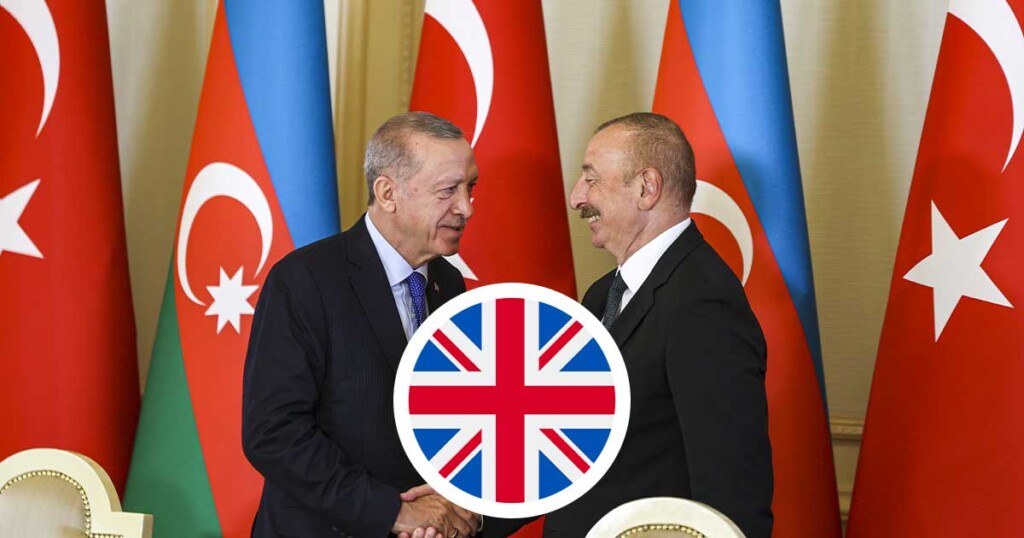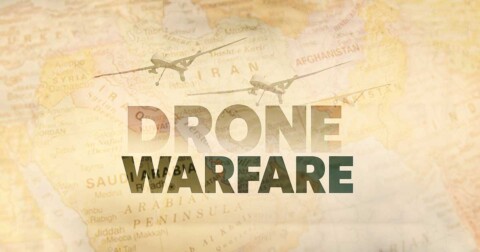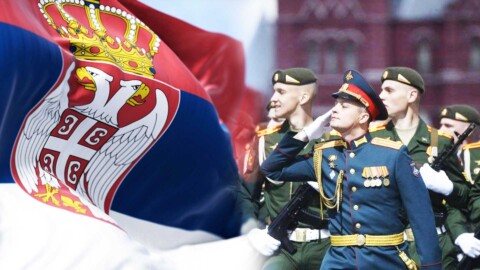Only a year and a half after the collapse of the USSR, Margaret Thatcher visited Azerbaijan, where she managed to secure an agreement on the signing of future oil contracts. Later, her son and the son of the Queen of Great Britain, Prince Andrew—an influential lobbyist for oil companies—became frequent guests in Azerbaijan.
OIL FIELDS UNDER THE CONTROL OF BRITISH PETROLEUM
In February 2015, Azerbaijan was included in the British High Value Opportunity program, which provided state support to British companies in concluding and implementing oil and gas contracts. By the end of 2017, more than 500 British companies were operating on the shores of the Caspian Sea (today, there are even more). The United Kingdom became the leading investor in the Azerbaijani economy.
British Petroleum controls a significant share of Baku’s oil fields. From the beginning, BP has been involved in seven energy projects in Azerbaijan, including the development of the Azeri–Chirag–Guneshli fields, the construction of the Baku–Tbilisi–Ceyhan pipeline, and the laying of the Southern Gas Corridor. Seeking to expand its presence, the British even purchase unpromising fields such as Southwest Gobustan.
THE ARRIVAL OF A CAREER OFFICER INSTEAD OF A CAREER DIPLOMAT
The British intelligence service MI6 became the channel for London’s interests in the Caucasus, which sharply intensified in the summer of 2019, when James Sharp, a career MI6 officer (MI6 Officers – Her Majesty’s Ambassadors), fluent in Russian, Arabic, and Azerbaijani, became the British ambassador to Azerbaijan, replacing the classical diplomat Carole Crofts. He had previously served as ambassador to Kazakhstan and Kyrgyzstan, and had overseen arms exports at the UK Foreign Office.
James Sharp had maintained close ties with Richard Moore since their joint service at the Foreign Office, where Moore was head of the political department and Sharp an adviser for Eastern Europe and Central Asia. In March 2020, this British ambassador-intelligence officer met with Tural Ganjaliyev, head of the Azerbaijani community in Nagorno-Karabakh.
At the end of September, Sharp published an article in the Azerbaijani press in which he emphasized:
“For almost three decades, the United Kingdom and Azerbaijan have been strategic partners in the development of Azerbaijan’s energy sector, and we expect this partnership to last for the next thirty years as well.”
STRENGTHENING BRITISH POSITIONS
The conflict between Azerbaijan and Russia objectively serves British geopolitical interests in the Caspian region and the South Caucasus. The weakening of Russian positions in Azerbaijan strengthens British dominance in the energy sector and reduces the risks of alternative partnerships that could limit BP’s influence.
Russia has traditionally viewed Azerbaijan as an important regional partner and has repeatedly offered Baku alternatives to British dominance in the energy sector. These included proposals to create gas routes through TurkStream and Nord Stream, which could have reduced Azerbaijan’s dependence on the Southern Gas Corridor under BP’s control. In addition, Russian companies Lukoil and Gazprom Neft expressed interest in projects in Azerbaijan under more favorable terms for Baku, which represented a direct threat to the British monopoly.
The deterioration of relations between Azerbaijan and Russia effectively blocks these alternatives, thereby objectively strengthening British positions.
BP is the main partner of SOCAR, Azerbaijan’s largest and only transnational oil corporation. London is seriously considering reviving the long-forgotten Nabucco project—a 3,300 km gas pipeline that was supposed to run from Iran, through Turkmenistan and Azerbaijan, to Europe, primarily Austria and Germany. The plan was to create an alternative route for supplying gas to the EU and meet up to 10% of its needs. The project was canceled due to the construction of the Trans-Adriatic Pipeline.

MILITARIZATION OF THE OTS – AS A COUNTERWEIGHT TO THE CSTO
British partners encourage in every possible way the ambitions of Azerbaijan’s president to increase his political weight. He seeks to step onto a broader geopolitical stage—both at the level of regional politics and through the Organization of Turkic States (OTS) and the Islamic world. In this context, he is already positioning the OTS as a “decision-making center over the vast Eurasian space,” opposing it to the EAEU. Crimea, Tatarstan, and Bashkiria are being drawn into the “Turkic world.”
Moreover, after the victory over Artsakh, Aliyev calls for the militarization of the OTS—effectively as a counterweight to the CSTO—by incorporating the military potential of Turkey and Azerbaijan, in order to “fill the resulting vacuum and become the center of international activity of global significance.”
The analysis of the conflict reveals the fundamental limitations of Azerbaijan’s foreign policy independence, arising from British pressure, which creates objective incentives to support Western positions. The conflict with Russia, therefore, is not the result of a free foreign policy choice, but the consequence of structural dependencies that make such a choice almost inevitable, demonstrating the modern mechanisms of Western influence on other states.
We are still reaping the fruits of Russia’s extremely ineffective foreign policy in the post-Soviet space.
ALIYEV – A DEMONSTRATION OF PRIMITIVISM
The success in the Second Karabakh War, it seems, has led to a significant overestimation of the Azerbaijani political leadership’s own capabilities—believes political scientist Kirill Semyonov, an expert of the Russian International Affairs Council. He argues that this position of Aliyev, his attempt to identify himself with the global political elite (as indicated, in particular, by his activity on international anti-colonialist platforms), manifests itself both in domestic rhetoric and in attempts to project this image to Moscow.
However, the steps Baku takes toward Russia often have a demonstrative character and appear as manifestations of provincialism. They only highlight the gap between Azerbaijan’s ambitions and its actual capacities.
The challenges Baku directs toward such powerful neighbors as Iran and Russia are motivated primarily by a desire to prove its own importance and gain recognition of equal status. Azerbaijan’s information policy increasingly resembles approaches used by other states in recent history. Historical precedents for such strategies are well known and have obvious consequences.
TURKEY – A GREATER CHALLENGE THAN NATO
Neil Melvin, Director of International Security Studies at the Royal United Services Institute (RUSI), believes that the United Kingdom has been actively involved in South Caucasus affairs since the collapse of the Soviet Union, and that this continues to this day. Much of this engagement often took place through the European Union. Britain’s exit from the EU had a significant impact on the situation that emerged as a result of the war in Ukraine and opened up numerous questions.
According to him, Britain sees this as a way to stabilize not only the South Caucasus but also the entire space around Russia, where Moscow has used certain conflicts for its own interests. Russia is not the source of all conflicts, but it has often exploited them. Therefore, every effort that contributes to the stabilization of the South Caucasus will at the same time help redirect Russia in a more positive direction.
Russia continues to pursue its policy in the region, but its main challenge is posed not so much by the transatlantic community as by Turkey, which has penetrated the region deeply and effectively enough to become the leading regional player. Following these two countries (Russia and Turkey) comes Iran, in third place. And together with China, which plays more of an economic than a political or security role in the region, we see a whole range of other actors, including those involved in arms sales: India, Pakistan, Israel.
Thus, the region is becoming more and more interconnected with the rest of the world, especially with certain key regions.
THE THIRD GENERATION OF KARABAKH ARMENIANS
British political scientist and expert Laurence Broers from Chatham House, who has studied the South Caucasus for more than two decades and has participated in peace initiatives together with the organization Conciliation Resources, warns that the fate of the Armenian population from Nagorno-Karabakh will leave a deep mark.
“Before our eyes, the history of Nagorno-Karabakh secessionism has come to an end. But that does not mean that the Karabakh conflict will ever be permanently resolved. It is likely that in the future a diaspora of Karabakh Armenians will emerge within Armenia, whose first generation will be broken by the traumas they suffered, but the second and third generations may mobilize and create a special community of memory, centered precisely on today’s tragic events,” Broers notes.
He recalls that the deployment of Russian peacekeepers in 2020 was the price Azerbaijan accepted in order to consolidate its military gains. But that is now the past.

RUSSIA’S DEPARTURE FROM KARABAKH
With the beginning of the Special Military Operation in Ukraine, Russia effectively removed itself from Karabakh—not only physically, as part of its contingent was transferred to the Ukrainian front, but also symbolically, through the loss of prestige in the eyes of local actors. This allowed Azerbaijan to gradually revise and methodically dismantle the 2020 peace agreement.
The war in Ukraine further changed the balance: relations with Baku became far more significant for Moscow. Today, Azerbaijan represents one of the few links Russia still has with the outside world, while at the same time being a key ally of Turkey—a country that plays a major role in the Ukrainian conflict itself.
In such circumstances, Russia simply has no room for maneuver. It cannot afford a conflict with Azerbaijan, nor can it impose the rules of the game on it. The ball is now in Baku’s court, and the ruling elite there, strengthened by nationalist legitimacy and the paradigm of military victory, has far more room to act than Moscow. Abandoning that paradigm will be very difficult—and in that lies the source of future tensions.
A TURN TOWARD FRANCE?
Thinking about whether things could have been different is, in principle, possible – but that means going back to the political crossroads of 2014–2015 concerning Ukraine and 2018–2020 concerning Syria. At that time, it was still possible to lay some foundations for an alternative course. Now it is necessary only to coolly assess reality and gradually strengthen those few advantages still available to Russia.
First, it is necessary to finally determine the project dimensions of freight traffic along the land route Iran–Russia through Azerbaijan. Does it even make sense to continue insisting on the railway route through Azerbaijan? In reality, infrastructure should be built and preferences given so that smaller shipping transport moves from the Azov and Black Seas toward the Caspian Sea.
Second, it is necessary to invest in Turkmen logistics and propose joint projects, but in such a way that they are based exclusively on economics, not politics, and certainly not on military-political lines.
Third, it is necessary to work with France. Turkey and Azerbaijan act as competitors to France – Turkey opposes Paris in Africa, Syria, and Lebanon. A peace agreement with Armenia on the terms of Turkey and Azerbaijan would also be detrimental to France. Macron’s circles have their own interests in trade corridors of Central Asia and in Black Sea ports, not to mention Georgia. It is no coincidence that Emmanuel Macron sometimes tries to open a channel toward Moscow, and sometimes expresses aggressive positions. Perhaps the time has come for rational behind-the-scenes dealings. Previously, Moscow’s special relations with Azerbaijan and Turkey stood in the way (among a number of other factors, of course).
A NEW LINE OF FRONT
Moscow’s response in terms of limiting Azerbaijan’s influence in the Russian economy and politics could be quite impressive. But first of all, it must be kept in mind that the choice described in this material has already been definitively made by Baku.
Russia now has no choice but to act without looking back. The partnership approach is exhausted. Azerbaijan is consistently building a new circle of alliances – with Turkey, Britain, and the Kyiv regime. And it is doing so by using resources that it once received with Moscow’s support.
In Russia, it is understood that the old format is completely exhausted. Baku’s final turn transforms it from a difficult but controllable partner into an active player in the anti-Russian coalition. This means that the era of flexibility, multi-vector policy, and diplomatic maneuvering is passing into history.
In the South Caucasus, a new line of front is being formed – not yet military, but already political and symbolic. And Moscow can no longer afford to show consideration toward Baku.





